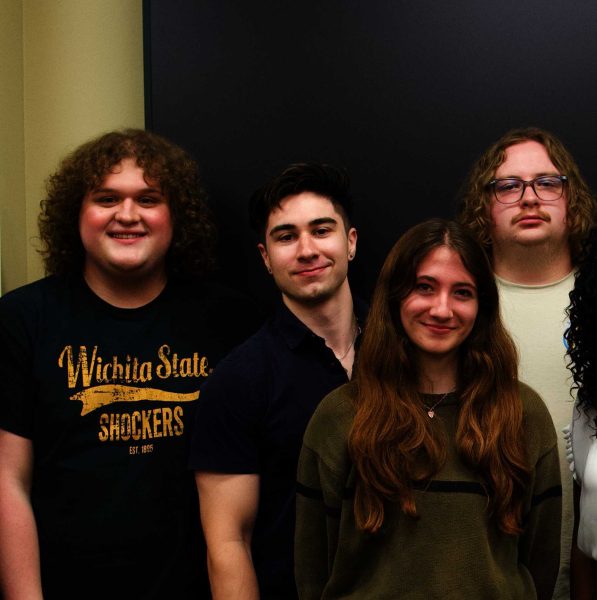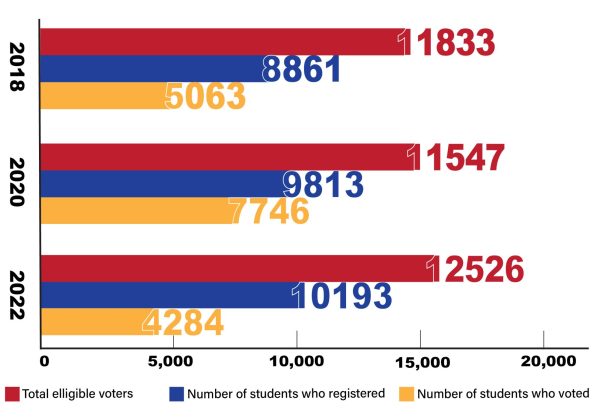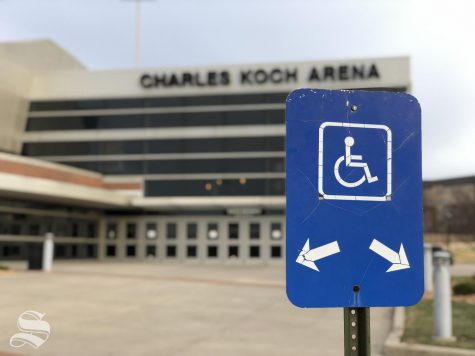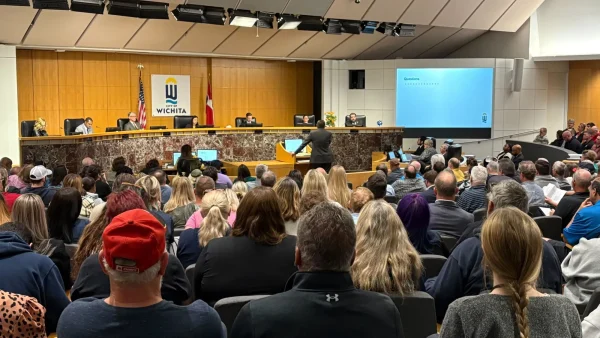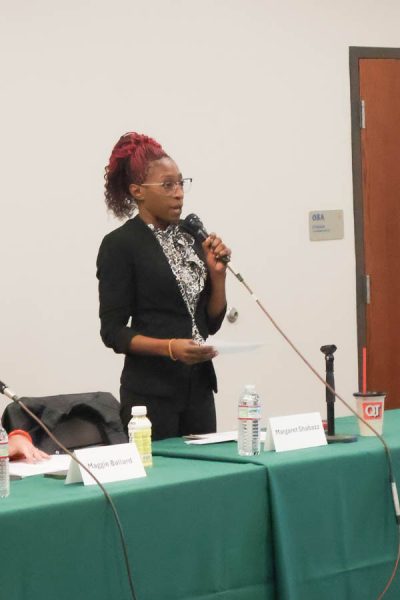Alfredo Corchado dives into Mexican-American relations
Journalist Alfredo Corchado reads an exerpt from his book “Midnights in Mexico.” On Oct. 25, Corchado read an exerpt of his book detailing the dangers he went through reporting events near the border.
Alfredo Corchado, a Mexico-America border correspondent with the Dallas Morning News, brought his knowledge to WSU during a diversity lecture. Born in Durango, Mexico, but raised in both California and Texas, Corchado is also the author of “Midnight in Mexico and Homelands.”
“I’ve been called the Mexican-American Forrest Gump,” Corchado said.
When he was a younger journalist, Corchado dreamed of becoming a foreign correspondent.
“I wanted to shine the light on issues that matter for both countries, and maybe even build bridges of understanding,” Corchado said.
At the beginning of his career, Corchado was mentored by Frank Allen at the Wall Street Journal.
“He saw a changing America and the need for a more diverse newsroom,” Corchado said. “He recruited me, a bilingual, bi-cultural reporter to go out and tell the story of my parents.”
His diversity lecture on Tuesday was part of a book talk, with a conversation Q&A at the end. Corchado’s discussion centered around the relations between Mexico and America.
“The border is a place that Washington uses too often as political theater … as a means to scare people,” Corchado said. “It really works.”
He spent much of the lecture dispelling myths surrounding border cities, on both the U.S. and Mexico sides, like presumptions about the U.S.-Mexico border.
“El Paso and U.S. cities along the U.S.-Mexico border have historically been safe,” Corchado said. “They are among the safest communities anywhere in the United States. That’s according to the FBI.”
He mentioned that many of the migrants along the Rio Grande are from nations like Cuba, Nicaragua and Venezuela, but due to weak diplomatic relations, they are sometimes sent somewhere else.
“These migrants cannot be easily sent on planes back home, so instead they are being sent back to Mexico,” Corchado said.
Corchado talked about the hope the border brings to many people, as well as the familial ties there. But, recently, the border has been associated with fear.
“The border is a vibrant, booming bi-national, bi-cultural region,” he said.

Maleah Evans is the arts and culture editor for The Sunflower for Fall 2025. Evans previously served as the arts and culture editor in Spring 2025. This...




